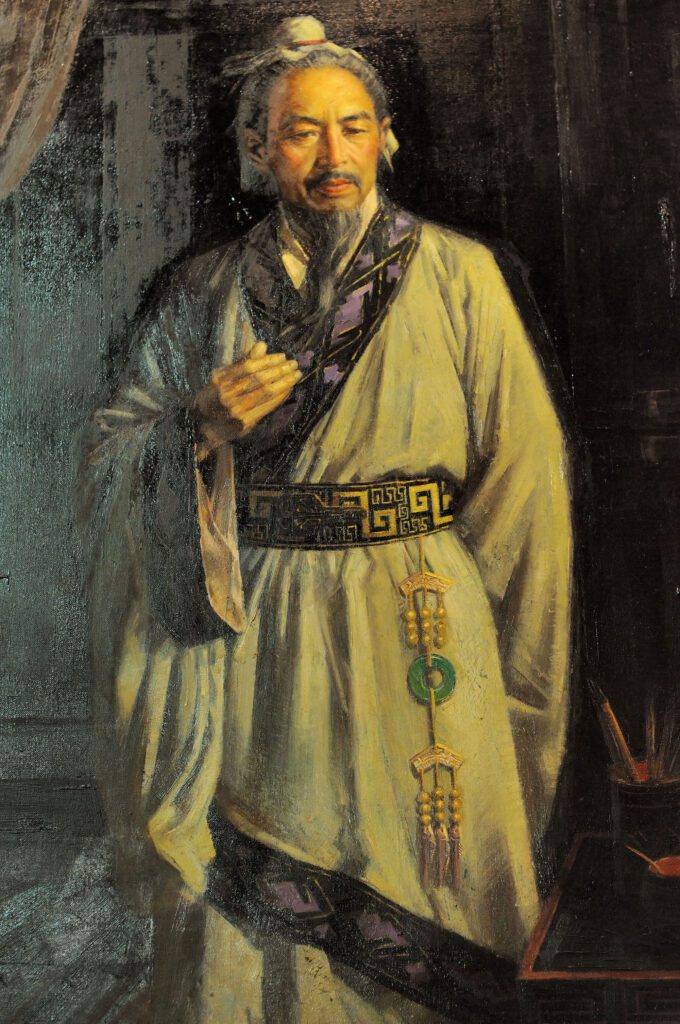Sun Tzu, a Chinese military general, strategist, and philosopher, is widely regarded as a master tactician and a prominent figure in military history. His treatise, “The Art of War,” continues to be studied and applied not only in warfare but also in various aspects of life, such as business and politics. Sun Tzu emphasizes the importance of unconventional strategies and tactics, encouraging the use of intelligence and cunning to achieve victory. One of the key aspects of his teachings is the use of guerrilla warfare tactics, which involve strategic retreats, surprise attacks, and the exploitation of weaknesses in the enemy’s forces. Sun Tzu’s principles have transcended time and found applications in various domains, including business, politics, and sports. His legacy lives on as his teachings provide invaluable insights for success.
The Legacy of Sun Tzu
Introduction
Sun Tzu, a Chinese military general, strategist, and philosopher who lived around 500 BC, is widely regarded as a master tactician and a prominent figure in military history. His treatise, The Art of War, continues to be studied and applied not only in warfare but also in various aspects of life, such as business and politics.
The Essence of Sun Tzu’s Principles
Sun Tzu emphasizes the importance of unconventional strategies and tactics, encouraging the use of intelligence and cunning to achieve victory. His teachings have had a profound impact on the concept of warfare, placing an emphasis on psychological warfare, flexible strategies, and the careful use of resources.
Guerilla Warfare Tactics
One of the key aspects of Sun Tzu’s teachings is the use of guerrilla warfare tactics. Guerrilla warfare is characterized by unconventional tactics, such as ambushes, hit-and-run attacks, and the effective use of terrain. Rather than engaging the enemy in open and direct confrontation, guerrilla warfare involves strategic retreats, surprise attacks, and the exploitation of weaknesses in the enemy’s forces.
The Element of Surprise
Sun Tzu recognized the importance of surprise in warfare and advocated for its careful employment. The element of surprise disrupts the enemy’s plans, creates chaos, and instills fear, thus providing a significant advantage to the forces employing guerrilla tactics. By striking when least expected, guerrilla fighters can inflict maximum damage on the enemy, while minimizing their own casualties.
Adaptability and Flexibility
Flexibility and adaptability are crucial elements in Sun Tzu’s warfare strategies. He emphasizes the need for commanders to be able to adapt their tactics and strategies according to the changing circumstances on the battlefield. This allows for quick adjustments and the exploitation of emerging opportunities.
Exploiting Terrain and Limited Resources
An important aspect of guerrilla warfare is the ability to utilize terrain and limited resources to gain an advantage. Sun Tzu advises commanders to carefully study the geographical features of the battleground and use them tactically. By choosing favorable locations for ambushes and utilizing natural obstacles, guerrilla fighters can maximize their chances of success.
Modern Applications and Influence
The principles outlined by Sun Tzu in The Art of War have transcended time and have found applications in various domains beyond military strategy. Business leaders, politicians, and sports coaches have adapted his teachings to enhance their decision-making processes and achieve success in their respective fields.
In Business
The competitive nature of the business world often requires leaders to make strategic decisions under pressure. Sun Tzu’s teachings, such as assessing strengths and weaknesses, outmaneuvering the competition, and exploiting opportunities, provide valuable guidance to business leaders in their pursuit of success.
In Politics
Politicians have also turned to Sun Tzu’s principles when it comes to formulating effective strategies in their campaigns or dealing with international relations. Understanding the strengths and weaknesses of opponents, using diplomatic maneuvers, and anticipating the moves of rivals are all concepts that can be directly applied to political decision-making.
In Sports
Coaches and athletes have found inspiration in Sun Tzu’s teachings on leadership and teamwork. Concepts such as identifying and exploiting weaknesses in the opponent’s defense, constantly adapting game plans, and maintaining discipline and unity within the team are fundamental for success in sports.
Conclusion
Sun Tzu’s legacy lives on through the continued study and application of his principles in various areas of life. He revolutionized military strategy by emphasizing the importance of flexibility, adaptability, and the sophisticated use of tactics and intelligence. Whether in warfare, business, politics, or sports, the teachings of Sun Tzu continue to provide invaluable insights for those seeking success.
